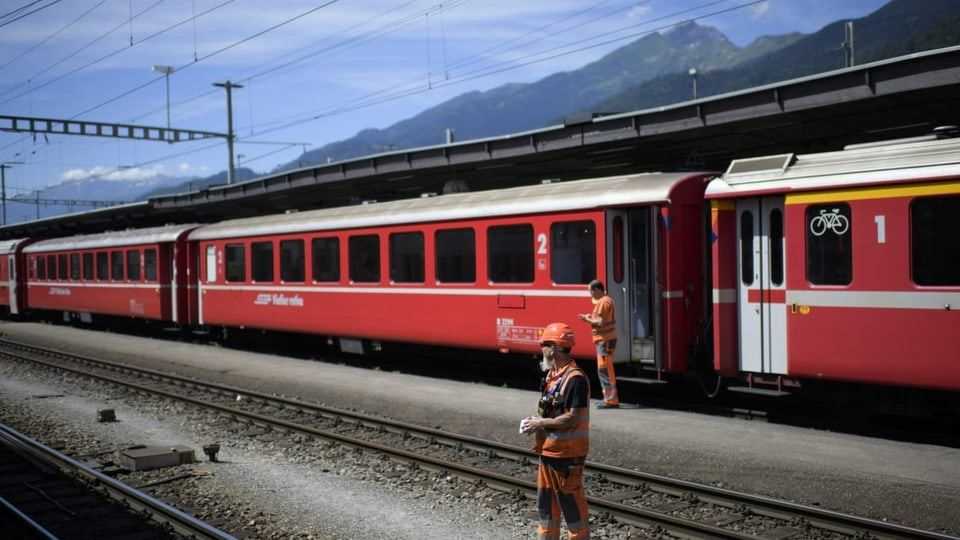contents
A look at other countries shows that Omikron leads to very high case numbers. The post office, energy suppliers or fire brigades that keep the Swiss system running could be affected by staff shortages. Many are calm at the moment, but are watching the situation carefully.
Care has been known as a critical infrastructure since the first wave of pandemics. The staff is exhausted. Nevertheless, one has prepared as well as possible for the staff shortages – at least in the homes, says the industry association Curaviva.
The situation can be stabilized through the use of alumni, volunteers or exchanges. However, if there is still an understaffing, strategic reserves must be used. That means: civil defense and community service would be used. Army missions would also be welcomed by the association.
Legend:
Health workers were already heavily burdened in the previous waves. The umbrella organization believes that the situation is still under control.
Keystone
Swiss Post is watching closely
Major staff absences would mean major challenges for Swiss Post. For this reason, the situation is constantly being analyzed and scenarios are worked out which, on the one hand, concern protective measures and, on the other hand, react to large-scale failures.
For the latter, internal staff transfers or the hiring of temporary staff would be conceivable. The use of civil defense would also be conceivable here as the most extreme means.
Railway failures like in England?
Due to the virus, Great Britain is currently struggling with major staff shortages in public transport – a number of trains are canceled. Is a similar scenario conceivable in Switzerland?
At the Räthische Bahn, train drivers in particular are a critical professional group. In the event of a staff shortage of 20 percent, train drivers from other regions would have to be called in, and services would have to be reduced in the case of even greater shortages.

Legend:
A train from the Rhaetian Railway: In the worst case, the offer would have to be reduced.
Keystone
Larger public transport companies such as SBB or BLS are covered by the Tagesschau on request. The personnel situations are stable and the protection concepts have been tried and tested.
Digitization helps in the energy sector
In the energy sector, companies like BKW have been digitizing the operation of their hydropower plants for some time. An advantage in a pandemic: “Today it is possible to operate some of the systems remotely if necessary,” says press spokesman Markus Ehringer. In this way, people who are healthy but in quarantine could also go about their work.
The central control centers in the power distribution were also operated in the last lockdown with a minimal number of personnel in emergency operations. In an extreme emergency, this work can also be done from home.
Maintaining functionality is also a top priority at Axpo. More detailed information on scenarios or the working method in the event of extensive staff absences was not presented to SRF.
No problems with wholesalers, police and fire services
The wholesalers Migros and Coop do not provide any detailed information on possible scenarios on request. Migros is currently not recording more sick leave than in other years, but is monitoring the situation carefully. Various precautions had been taken at Coop that were already known from previous waves. The supply order could always be fulfilled.

Legend:
The fire brigades would increasingly help each other out in the event of bottlenecks.
Keystone
Swissfire, the umbrella association of fire services, refers primarily to the regional network of fire services. If there were bottlenecks in bases, neighboring fire brigades would also be alerted. The operational readiness is guaranteed at all times.
Most police corps are covered when asked about possible bottlenecks, the care is guaranteed.
